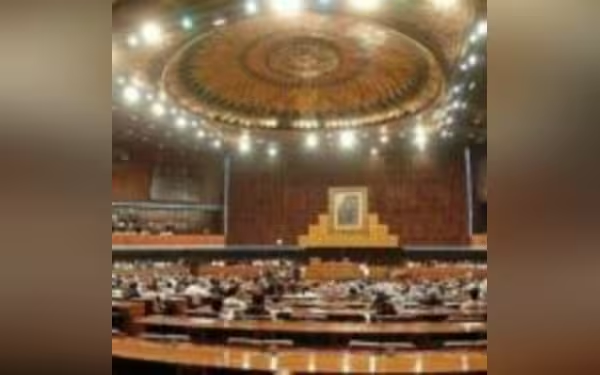Saturday, November 16, 2024 06:46 PM
Omnibus Legislation Raises Concerns Over Transparency in Pakistan
- Omnibus legislation creates confusion and mystery in governance.
- Lack of public scrutiny raises doubts about legislative integrity.
- Urgent reforms needed amid pressing national issues.
 Image Credits: pakistantoday
Image Credits: pakistantodayThe rise of omnibus legislation in Pakistan raises serious concerns about transparency and the integrity of the legislative process.
In Pakistan, the legislative process has often been marred by inefficiency and a lack of transparency. The current trend of 'omnibus legislation' has raised eyebrows and created a sense of mystery surrounding the government's intentions. Omnibus legislation refers to the practice of bundling multiple laws into a single bill, allowing for quicker passage through Parliament. While this may seem efficient, it often leads to confusion and raises questions about the quality of the laws being enacted.
Real and effective legislation is a rare phenomenon in Pakistan. The government frequently resorts to ordinances, and the Parliament often engages in delaying tactics rather than meaningful debate. Recently, there has been a surge in omnibus legislation, which has sparked concerns about the integrity of our democratic processes. The haste with which these laws are being passed leaves little room for public scrutiny or debate, leading many to wonder about the true motivations behind such rapid legislative action.
Legislation is a critical function of government, intended to promote the welfare of the nation and address issues such as corruption, injustice, and lawlessness. However, the current approach seems to prioritize speed over substance. The lack of deliberation raises doubts about whether these laws genuinely serve the public interest or if they are merely a façade for deeper political maneuvering.
Quaid-e-Azam Muhammad Ali Jinnah, the founder of Pakistan, emphasized the importance of a sound legal framework for ensuring justice and equality. He stated, "The first duty of a government is to maintain law and order, so that the life, property, and religious beliefs of its subjects are fully protected by the State." This principle is often overlooked in the rush to pass legislation without adequate consideration of its implications.
Similarly, Allama Muhammad Iqbal, a prominent philosopher and poet, highlighted the need for laws that reflect justice and collective well-being. He advocated for a flexible approach to legislation, urging societies to create laws grounded in ethical principles and divine guidance. The current trend of omnibus legislation seems to contradict these ideals, as it often includes provisions that may not stand on their own merit.
Moreover, the pressing issues facing Pakistan, such as inflation, political instability, and a crumbling judicial system, demand immediate attention. Instead of addressing these crises, the government appears preoccupied with passing legislation that lacks thorough examination. The judicial system, in particular, is in dire need of reform, yet the government has chosen to increase the number of Supreme Court judges without addressing the underlying issues of capacity and infrastructure.
The recent amendments to extend the tenure of the Army Chief have further fueled speculation about the government's priorities. This decision, made in haste, raises questions about the influence of military power in political affairs and the overall health of our democracy. As Albert Einstein once said, "The world is a dangerous place to live, not because of the people who are evil, but because of the people who don’t do anything about it." This sentiment resonates strongly in the context of Pakistan's current political landscape.
The ongoing trend of omnibus legislation in Pakistan presents a significant challenge to the democratic process. While the intention may be to streamline governance, the lack of transparency and public engagement raises serious concerns. It is crucial for the government to prioritize meaningful dialogue and thorough examination of proposed laws to ensure they serve the best interests of the nation. Only through careful consideration and adherence to the principles of justice and equality can Pakistan hope to build a stronger, more equitable society.













